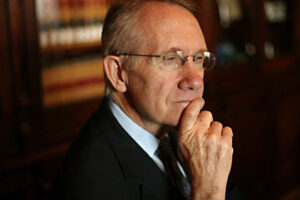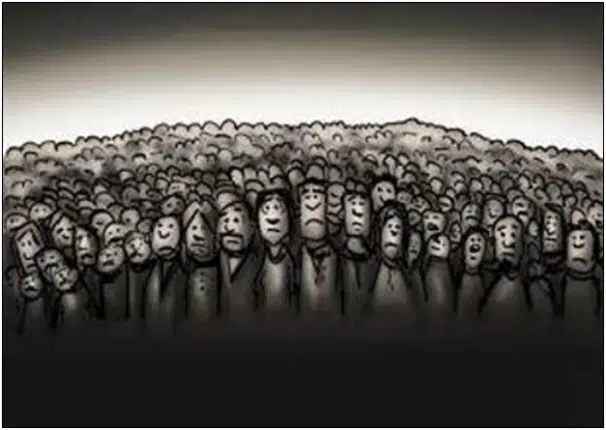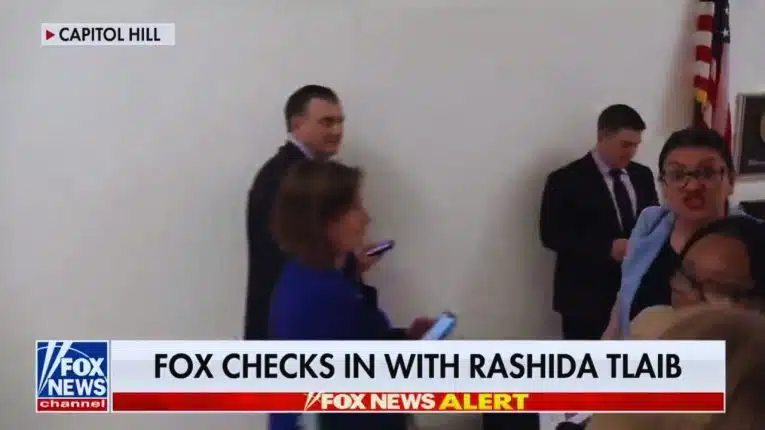Harry Reid just does not like dissent. Yesterday, the Senate Majority Leader failed to muster the votes necessary to proceed to the so-called DISCLOSE Act, which would impose burdensome restrictions on corporations and nonprofits that choose to engage in advertising for or against candidates for federal office.
In arguing for the bill, Reid blasted Senate Republicans for dissenting against major Democrat policy initiatives, in particular the $2.5 trillion ObamaCare, the government takeover of the nation’s financial sector, the $862 billion “stimulus,” and the $34 billion extension of unemployment welfare benefits.
What Reid failed to acknowledge is that Senate Republicans were unable stop a single one of those measures. They merely dissented against legislation that ultimately passed.
Perhaps that was the problem. Perhaps he would prefer unanimity in support of his legislative agenda. Or a one party system.
Nonetheless, that did not prevent Reid from labeling Senate Republicans who blocked the bill as being in the pockets of corporations and special interests. Only, the DISCLOSE Act, which Reid supports, is laced with special interest exemptions. The NRA, AARP, the Sierra Club, unions and others have all achieved privileged carve-outs that will allow them to make independent expenditures without any disclosure at all.
Media, too, maintained its decades-long exemption from federal election law. According to 2 USC 431 (9) (B) (i), the 1971 Federal Election Campaign Act: “The term ‘expenditure’ does not include any news story, commentary, or editorial distributed through the facilities of any broadcasting station, newspaper, magazine, or other periodical publication”. This media exemption to campaign regulation is reinforced in the DISCLOSE Act’s language on page 24.
To add insult to injury, Reid said, “Why would we let those who go through such great lengths to conceal their names, and those who try to protect them by blocking this bill, dilute or manipulate our voices?” What about the NRA, AARP, Sierra Club, unions, and media? Why does their protection from disclosure yield the excessive regulation of everyone else?
The mere presence of exemptions for anybody in this bill discredits the premise for disclosure — that there is something inherently corrupt about political speech. Never mind that that the freedom of speech and of the press is explicitly protected by the First Amendment to the Federal Constitution. Never mind that the Supreme Court struck down disclosure requirements in 1958 in NAACP v. Alabama.
The same Senators who keep quoting former Supreme Court Justice Louis Brandeis, who said, “Sunlight is the best disinfectant,” are the same Senators who are supporting legislation with disclosure exemptions for the privileged few. How is it that the possibility for corruption from anonymous speech exists for everybody except those so exempted?
It would merely be a theater of the absurd if its ramifications were not so far-reaching. Corruption is not prevented under the DISCLOSE Act. It is being institutionalized. In fact, Congress is giving out privileged speech licenses to the highest bidder.
Reid revealed his true motivation when he said, “Whenever the voice of the corporation is the loudest, the voice of the citizen is harder to hear.” He’s okay with businesses and nonprofits criticizing him when he runs for reelection, he says, he just wants to know who they are.
Perhaps businesses and other groups are afraid to speak out in the open for fear of federal intervention into their affairs. In fact, under the bill, express advocacy for a candidate running for federal office is an open invitation to opening up the books of even the minutest details of a business or nonprofit’s activities.
The Act’s disclosure requirements includes any expenditures in excess of $10,000 of express advocacy for or against a candidate up to 20 days before an election and in excess of $1,000 within 20 days before an election, which must be reported to the FEC within 24 hours. The disclosure requirements extend to 120 days prior to the first presidential primary or caucus, and 90 days before the first Congressional primary or caucus, and extend through general election day.
Anyone who invests or donates in excess of $600 to a company or organization that engages in express advocacy of a candidate, except for media organizations and other exempt entities, would have their names submitted to the FEC. The bill also requires that the highest ranking official of a business or nonprofit appear on camera to say that he or she is approving the message on the organization’s political communication, and they must list the top funder of the ad and the top five donors of the organization.
The effect on political speech will be a chilling one. The message is, “Don’t you speak out against candidates running for office, or we’ll come after you. We’ll show your books to the public. We’ll destroy you.” The intent here is to intimidate by making the costs of speaking out outweigh the benefits, all under the guise of disclosure.
Americans don’t let the government spy on individuals in the ballot box, so why should they let government officials necessarily know who is criticizing them?
Dissent against government is supposed to be one of the highest forms of patriotism. But under Reid’s regime, it will be a marker, a scarlet letter by which dissidents can be weeded out for government discrimination. This should be greatly alarming for all who value any legitimate, credible opposition in our political system.
Robert Romano is the Senior Editor for Americans for Limited Government (ALG) News Bureau.








